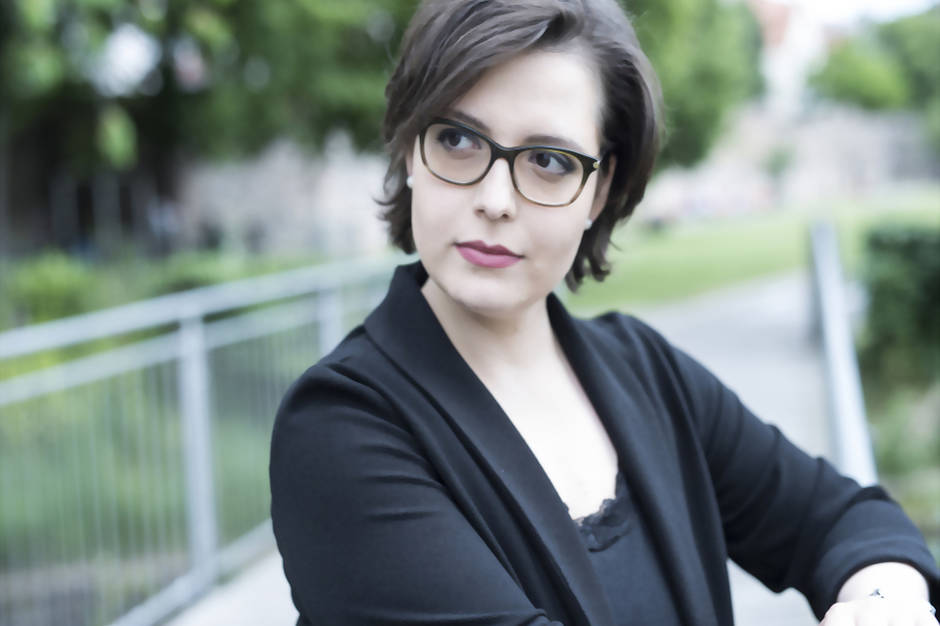Anja Ruess, Germany
Second year ISE student conducting thesis research in Germany
Name: Anja Kathrin Ruess
Age: 24
Hometown: Ulm, Germany
Academic Background: B.A. in Politics and Public Administration, University of Konstanz, Germany
Major & Class: Sustainable Energy, Class of 2018
Location of thesis research: Karlsruhe,Germany
How did you discover your thesis opportunity?
During my second semester at ISE, I came up with my thesis topic and was lucky enough to find a committed and supportive supervisor and experienced adviser here. However, my topic (nuclear waste management) is not very common in Iceland as there is no nuclear power. Cooperating with an institution with more expertise and ongoing research in the field would thus only be beneficial for my thesis. I knew Karlsruhe Institute of Technology (KIT) from a seminar I took in high school and, with my supervisor's approval, I simply applied. It was really not more than a speculative application, but my project seems to have attracted interest. I now have an additional adviser abroad and I'm both excited and grateful for the opportunities this cooperation entails.
What motivated you to travel and study in Karlsruhe, Germany?
The ITAS (Institute for Technology Assessment and Systems Analysis) at KIT is one of the leading institutions for advice for research and technology policy in Germany. Also, I'm considering a PhD afterwards and I'm thus hoping for valuable insights.
What thesis research are you conducting?
I am looking into public participation/citizen involvement in a multinational nuclear waste repository project. Essentially, I'm comparing Austria, Denmark and The Netherlands (3 of 6 European countries that are actually considering a shared repository), to see if and how citizen involvement in the decision-making process can be integrated on a multinational level. This analysis will include technological, legislative and political aspects.
What do you hope to accomplish?
I'm hoping to identify critical junctures in multinational citizen involvement, on the path to conceptualizing citizen involvement in a shared repository project. In a broader sense, I would like to contribute to the academic discussion around ongoing problems of permanent nuclear waste disposal, which has proven to be demanding not only on a technological but also on a societal level.
What are you most excited for during your time there?
I'm most excited for the networking and personal connections in Karlsruhe, to meet experts that have been working in the field for years or even decades, to learn from their experience and get a realistic insight into research conducted at ITAS.
What do you expect will be your biggest challenges?
I see my thesis as an interdisciplinary approach to nuclear waste management and the technological aspects are of great importance to me. However, my background being political science, I commit to the conventions and traditions of my academic discipline. For instance and unlike other ISE theses, my project will include a theoretical chapter that delves into the concept of public involvement, both with regards to the genuine philosophical idea and its de facto emergence. Even though the analysis chapter will be more technical/straightforward, this theory chapter represents a significant part of my thesis, which is probably unusual for ISE. I feel like communicating the structure of my project to non-political scientists will therefore be the biggest challenge.
How will your research abroad compliment the rest of your studies with ISE?
Sustainability, in my view, includes dealing with the legacy of the past. Even though nuclear has just been a small portion of my studies at ISE, the question of waste disposal is hanging over many countries like a sword of Damocles. In this context, my project investigates innovative solutions from an interdisciplinary angle, at the crossroads of technology and decision-making.

